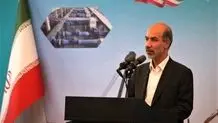Taliban reaffirms commitment to Hirmand treaty with Iran
The Taliban Minister of Energy and Water of Taliban, Abdul Latif Mansur, emphasized the need for negotiations to address the issue of the Helmand water treaty, reaffirming Afghan commitment to Iran's water rights.

MEHR:The Taliban Minister of Energy and Water of Taliban, Abdul Latif Mansur, emphasized the need for negotiations to address the issue of the Helmand water treaty, reaffirming Afghan commitment to Iran's water rights.
In an interview with TOLO news, Mansour asserted that any kind of provocative remarks should be avoided.
“We have cleared the stance of the ministry in this regard. We are committed to the standing treaty. Whenever there is a drought or there is any challenge, there should be a reference to the agreement in which all of the points have been addressed… the condition of droughts and normal conditions are clearly mentioned,” Mansur said.
“We had said before that we are two Islamic countries and we have relations with each other, religious and cultural relations. Many of our refugees are there, so we respect all these issues and do not want a technical issue to become politicized and for there the negative propaganda between the two countries to rise,” he added.
Hirmand is the longest watercourse in Afghanistan. It stems from the Hindu Kush Mountains west of Kabul and flows in an arc southwest to flow into the Hamoun wetlands, located in Iran’s Sistan and Baluchestan Province.
Following more than a century of rifts over Hirmand’s water supply, Iran and Afghanistan signed a treaty in 1973 to establish a means of regulating each country’s use of the river.
Iran should receive an annual share of 820 million cubic meters from Hirmand under the accord, which Afghanistan has grossly violated in letter and spirit, endangering the lives of many Iranians who rely on Hamoun wetlands for drinking water, agriculture, and fishing.
Afghanistan has also built dams on the Hirmand which have constricted the water flow into Iran.
آخرین اخبار Iran را از طریق این لینک پیگیری کنید.




